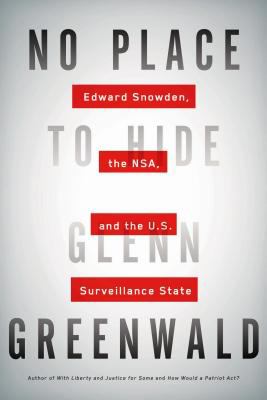
 I feel like I missed most of the Edward Snowden saga when it originally surfaced in the news – I knew he was leaking top level information and that the U.S. was forced to admit some uncomfortable truths to our allies about our data collection habits. What didn’t register with me until reading No Place to Hide is that the National Security Agency had (has?) a goal of collecting and analyzing virtually all of our digital information.
I feel like I missed most of the Edward Snowden saga when it originally surfaced in the news – I knew he was leaking top level information and that the U.S. was forced to admit some uncomfortable truths to our allies about our data collection habits. What didn’t register with me until reading No Place to Hide is that the National Security Agency had (has?) a goal of collecting and analyzing virtually all of our digital information.
The first part of the book traces author Glenn Greenwald’s doubts about Snowden, his foot-dragging on installing the encryption programs on his computer that Snowden required in order to communicate, and his ultimate decision to meet with Snowden in Hong Kong after reviewing some of the never-before seen documents. Once Greenwald breaks the story of the leak, he faces derision and worse from many of his fellow journalists, some of whom begin to describe him as an “activist” instead of a journalist, which he believes may remove the legal protections that journalists enjoy and possibly open him up to prosecution.
The second part of the book lays out Greenwald’s philosophy of privacy and his outrage at the intrusions of government – familiar territory for Greenwald who has based his career, including several prior books, on these issues. He also names names – calling out reporters and news organizations that he believes act according to the government’s wishes and that should not be trusted.
Will this book convince me to stop using digital devices? No, but I will be a little more cognizant of the often-repeated statement that there is no such thing as privacy on the Internet … or with a phone nearby … or from hidden cameras, etc.
We love helping people find books, movies, and more.
Tell us about your preferences, and our librarians will create a list of titles selected specifically for you.